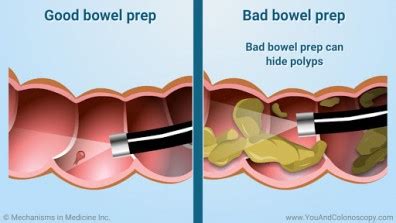Colostrum: Boosts Baby's Immune System
The miracle of birth is a complex and fascinating process, filled with intricate details that ensure the health and well-being of the newborn. Among the many incredible aspects of this process is the role of colostrum, a nutrient-rich fluid produced by the mother’s body in the first few days after giving birth. This yellowish, thick liquid is often referred to as “liquid gold” due to its immense value in providing newborns with essential nutrients and immune factors that help them thrive in the outside world.
Introduction to Colostrum
Colostrum is produced by the mammary glands of female mammals (including humans) in late pregnancy and the few days after giving birth. It is tailored to meet the specific needs of the newborn, providing a concentrated dose of antibodies, proteins, and other nutrients that are vital for the baby’s development and immune system. Unlike milk, which is produced later and is more focused on providing calories and nutrients for growth, colostrum is primarily designed to offer immune protection and stimulate the newborn’s digestive system.
Composition of Colostrum
The composition of colostrum is unique and highly beneficial for newborns. It contains:
- Antibodies (Immunoglobulins): These are proteins that help fight infections. The primary antibody in colostrum is secretory IgA, which provides mucosal immunity and protects the baby’s gastrointestinal tract from harmful pathogens.
- Growth Factors: These factors help in the development and maturation of the baby’s gut and other body tissues.
- Proteins: High-quality proteins that are easily digestible by newborns.
- Fats and Carbohydrates: Though present in smaller amounts compared to mature milk, they provide essential energy.
- Vitamins and Minerals: Colostrum is a rich source of vitamins A, E, and other essential vitamins and minerals crucial for the baby’s health.
Benefits of Colostrum for Newborns
The benefits of colostrum for newborns are numerous and critical for their early development:
- Immune System Boost: The antibodies in colostrum help protect babies from infections, reducing the risk of diarrheal diseases and respiratory infections.
- Gut Health: Colostrum helps in the establishment of a healthy gut microbiome, which is essential for digestion, immune system function, and even brain development.
- Low in Volume, High in Value: Although the volume of colostrum is small compared to mature milk, its nutritional and immune-boosting value is high, making every drop count.
- Easy to Digest: The composition of colostrum is such that it’s easily digested by newborns, reducing the risk of allergic reactions and digestive issues.
Challenges and Considerations
Despite its benefits, there are challenges and considerations related to colostrum:
- Production and Letdown: Some mothers may experience difficulty with the letdown reflex or have concerns about the amount of colostrum produced.
- Supplementation: In cases where the mother is unable to produce enough colostrum or the baby is having trouble latching, supplementation might be necessary. However, this should be done under medical guidance to ensure the baby receives the necessary nutrients and immune factors.
- Banking and Donation: For mothers who are unable to breastfeed, donor breast milk, which includes colostrum, can be a lifesaving option. Organizations that screen and pasteurize donor milk provide a safe way for these babies to receive the benefits of colostrum.
Conclusion
Colostrum is a natural, highly specialized substance that plays a critical role in the health and immune defense of newborns. Its unique composition makes it an ideal first food, offering protection and nutrients that are tailored to the baby’s needs in the earliest days of life. While challenges may arise, the benefits of colostrum underscore the importance of supporting breastfeeding mothers and ensuring that all babies have access to this precious resource.
FAQ Section
What is the main difference between colostrum and regular breast milk?
+Colostrum and regular breast milk differ significantly in their composition and purpose. Colostrum is produced in the first few days after birth and is rich in antibodies and immune factors, while breast milk, which comes in later, is more focused on providing nutrients for growth and development.
Can colostrum be stored for later use?
+Yes, colostrum can be expressed and stored for later use. It’s recommended to store it in small quantities in the freezer. However, the process of expressing and storing should be done under clean conditions to preserve the quality and safety of the colostrum.
Is it possible for mothers to increase their colostrum production?
+Frequent breastfeeding or expressing can help stimulate the production of colostrum and subsequent milk. Additionally, a balanced diet and staying hydrated can support overall lactation health. However, the initial volume of colostrum is relatively small and designed to meet the newborn’s immediate needs.



